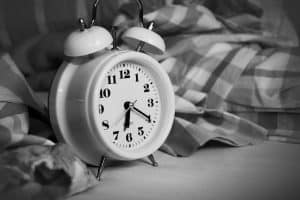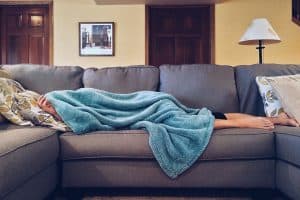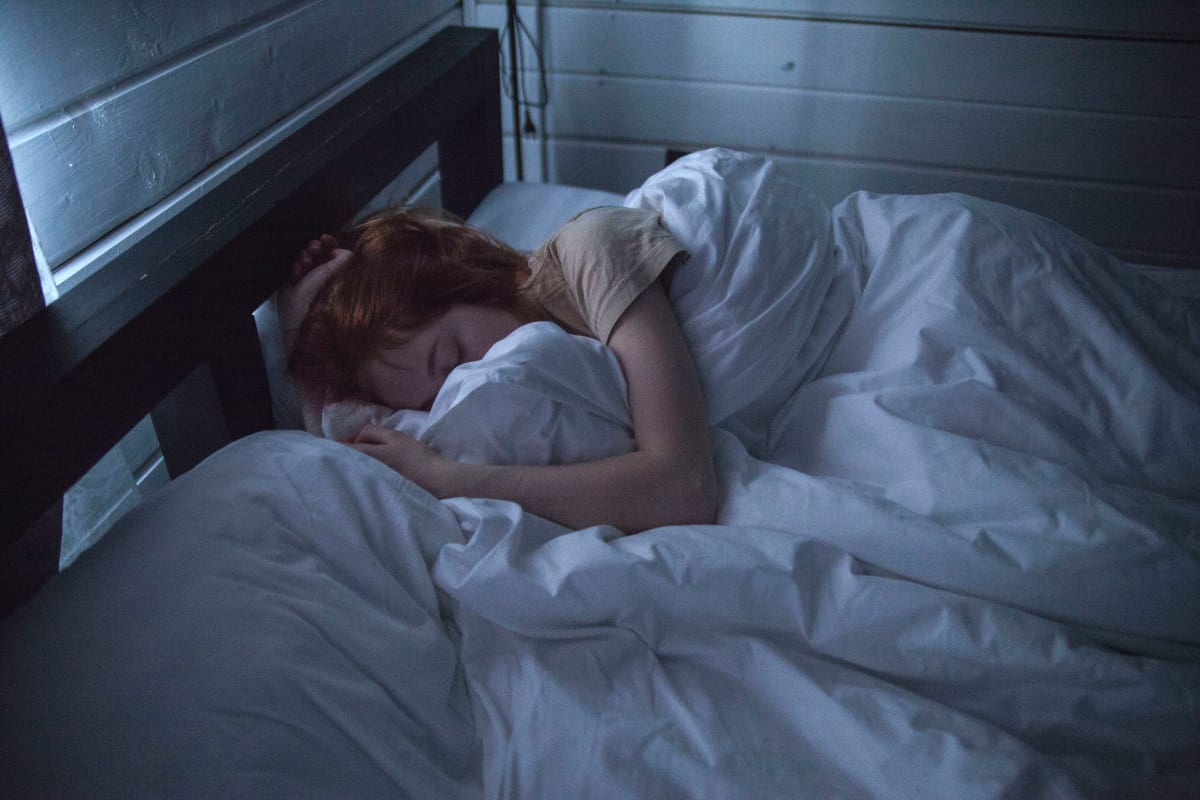Why Getting 7-9 Hours A Night Is Vital To Your Physical And Mental Health
Psychologists and health professionals all over the world recognize how important it is to get a good night’s sleep. In fact, it’s pretty much universally agreed that sleep is one of the pillars of staying healthy – right there with exercise and good nutrition.
Unfortunately, the number of people who are getting enough sleep has dropped dramatically since the mid-1900s and continues to do so. Today, a staggering 35% of Americans get less than the recommended 7-9 hours per night, which negatively impacts their mental health, physical health, and
Here are some quick facts about sleep deprivation:
- In the early 1900s, people generally slept a whopping 9 hours per night! Today, the average is down to 6.8.
- The percentage of adults who don’t get enough sleep has increased by 31% since 1985. That’s a whole lot of change in a short amount of time.
- 70% of college students get far less sleep than they need. And if you think that’s bad, the statistics on teenagers suggest that 97% of teenagers get only 6 ½ hours per weeknight. (For perspective, most experts recommend that teens get 9 hours per night because of the huge changes taking place in their bodies during that time of life. They really do need their beauty sleep… and most aren’t getting it.)
- About 20% of serious car accidents – and their subsequent injuries – are attributed to drowsy driving.
- Sleep deprivation is strongly linked to obesity.
*Statistics cited from the CDC, NIH, Gallup, and Sleep Association via TheGoodBody.com.
Why Are We Sleeping Less?

Though we know on the surface that getting enough sleep is vital to good health, many of us just don’t do it.
Why?
One of the reasons we’re sleeping less is technology. Artificial lighting has been around for a while, and though it’s contributed somewhat to our falling sleep rates, most people have gotten pretty good at turning the lights off or down as they’re relaxing before bed. The new problem is all of our easily accessible screens.
Phones, tablets, computers, and televisions all emit blue light, which stimulates our brains to stay awake and alert. This decreases the production of melatonin, which is critical to falling and staying asleep. Many people (especially teenagers) use their devices as a way to wind down before hitting the hay. But while our technology often seems to help people relax on the surface, it actually makes falling asleep a struggle. And when they’re struggling to sleep, many people reach for their devices, creating a vicious cycle.
Technology has also increased our personal accessibility, which has quickly transformed us into a 24-hour society. Your boss can email you at 10 PM, it’s very tempting to work overtime for that sweet pay bonus, and the gym is open at all hours of the day and night. More and more people are working extra jobs to make ends meet, families are quickly becoming overburdened with the many activities of their kids, and we’re reachable at any hour of the day or night.
The increasingly hectic nature of our lives is making it difficult to find enough hours to sleep. And since sleep, unfortunately, isn’t seen right off the bat as the productive activity that it actually is (and did we mention that it’s a physiological need with serious consequences when it isn’t met?) it’s often one of the first things to go. This is especially true in light of a recent cultural shift that displays sleep in a negative light and over-glorifies those who sacrifice their sleep in pursuit of work or life activities.
“Our society has valued people who brag about being able to function on very little sleep as a mark of someone who is aggressive, dynamic, successful,” Dr. Niel Kavey, the director of the Sleep Disorder Center at New York-Presbyterian at Columbia University Medical Center said in an interview with CNN. “Well, forget that. Admire someone who puts focus on sleep and is not making mistakes (from sleep deprivation).”
Here’s Why You Need To Get Enough Sleep

The health benefits of getting enough sleep are indisputable. Check out all of these amazing ways sleep can help your mind and body heal and be ready to face the ups and downs of life!
- Good sleep can help you keep your weight down! As we mentioned previously, sleep deprivation is strongly linked to obesity. Ironically, many people today sacrifice sleep for a little extra gym time in order to help them keep the pounds off. While exercise is a pillar of health and should be a part of everyone’s life, it may be just as good (if not better) for your body to get that extra hour of sleep and schedule your workout for a different time during the day if possible.
- People who get enough sleep tend to eat less during the day. Sleep deprivation negatively affects the hormones that regulate hunger, which means that you’re more likely to experience variations in blood sugar, increased appetite, and the tendency to mindlessly snack. In fact, a chronic lack of sleep can cause symptoms that are virtually identical to the early stages of Type 2 Diabetes.
- Good sleep increases your ability to concentrate, make good decisions, and be productive in your work and daily life. Maybe it’s better to get that extra hour of sleep instead of going to work an hour early after all… who knows what you could do during your 8-hour shift if you’re well-rested, focused, and ready to tackle your workload with energy?
- Getting a good night’s sleep lowers the risk of heart disease and stroke. Heart problems are the leading cause of death in the United States, and their prevalence is steadily increasing. Something as simple as getting 8 hours of sleep per night can help protect your body and keep you healthy in the long-term.
- Psychologists have known for a long time that sleep deprivation is linked to depression, anxiety, and lower general mental health. Tiredness makes it more difficult to control your emotions, leading to actions that you may later regret. It also impairs your ability to read and respond to social cues, which is why it also takes a toll on relationships. And finally, those who suffer from a lack of sleep are far more prone to depression.
As your trusted counselors in Cheyenne, we can’t overstate the importance of getting enough sleep. There mental and physical health benefits are astounding! If you’re struggling to find the time to sleep, we suggest taking a look at your schedule to see what activities you can reduce or cut out entirely. If you have a sleep disorder, we recommend getting treatment as soon as possible.
Stay tuned for our next article with tips on how to get better sleep. And, as always, if you have questions or comments, please feel free to chime in below!

